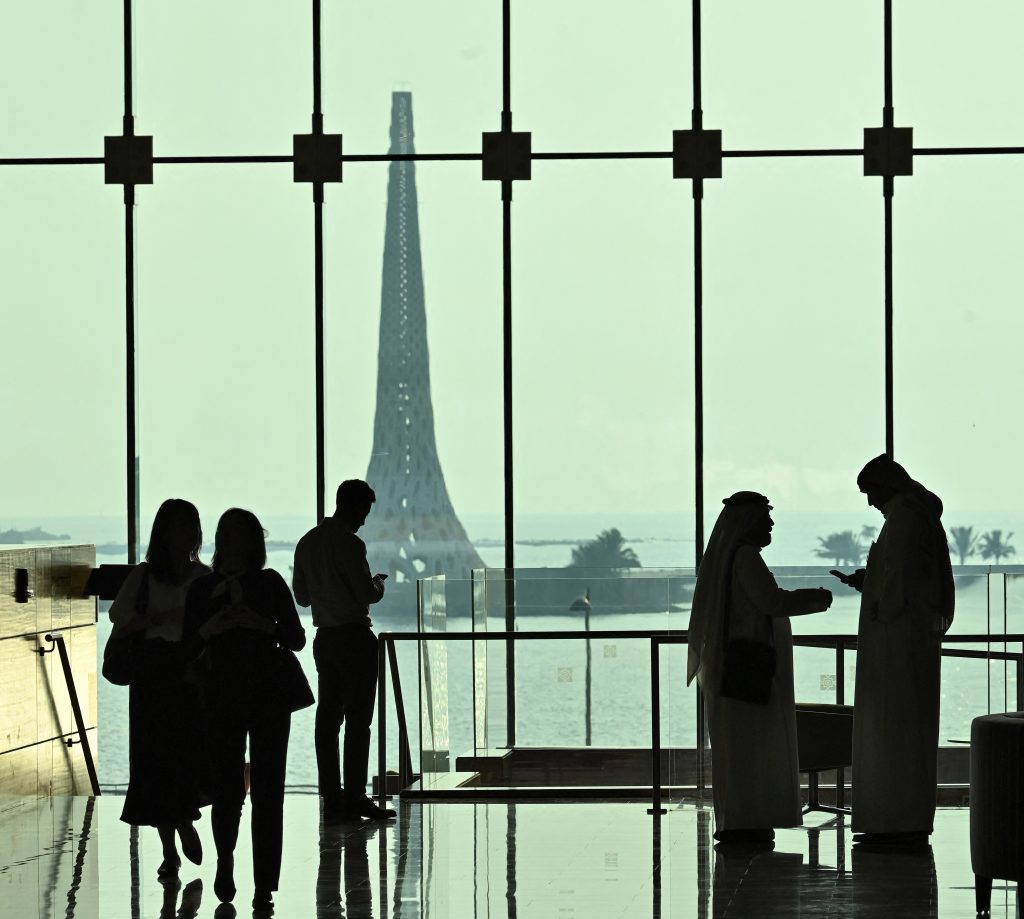
- ARAB NEWS
- 05 Jul 2025

Education has always been at the heart of progress in Saudi Arabia and, as we celebrate Saudi National Day, it is important to remember, appreciate and be proud of what has been achieved in a short period of time, but also to anticipate and prepare for future challenges and developments.
We have certainly come a long way in education. The Kingdom has gone from low literacy rates of about 15 percent for men and less than 2 percent for women in the early 1960s to 99 percent for men and 96 percent for women today.
Women also participate in education at largely the same rate as men, including higher education, and are among the most-educated women in the Muslim world.
Significantly, in 2018, 66 percent of Saudi university graduates in the natural sciences, mathematics and statistics were women — a much higher rate than in many other countries, including developed nations.
We are seeing the fruits of this progress in education, as our universities are making it into international rankings and every day we rejoice at news of our high-achieving young men and women winning international awards and accolades in various fields.
The Ministry of Education is one of the country’s largest public institutions and the government has consistently allocated the largest percentage of its annual budget to education.
As of 2019, there were 6.4 million students enrolled in pre-university general education, with almost 82 percent of students attending public schools.
There are also about 1.6 million students enrolled in universities and almost 200,000 in technical and vocational education.
That is about 20 percent of the population enrolled in different levels of education who will, over the next few years, graduate and enter the job market.
Unemployment remains a major challenge for Saudi Arabia, with many people previously blaming the education system for failing to provide the job market with the human resources that have the knowledge, skills and talent required.
Hence, during the past few years, the Ministry of Education has been working hard to implement and manage a drastic transition in the education system.
Saudi Arabia’s Vision 2030, envisioned and launched by Crown Prince Mohammed bin Salman in 2016, intends to diversify the Kingdom’s economy from being oil-based to multi-based, with a particular focus on sectors such as tourism, industry and technology.
It also aims to boost foreign investment, privatize state-owned assets, create private sector jobs and increase non-oil exports to 50 percent of all Saudi exports to ensure that the country is on the right trajectory to prosper in a post-oil era.
This economic transformation requires a modernized education system and an upskilled Saudi human capital so that the youth are equipped with the right skills for the jobs of the future and are able to compete in a local and global jobs market.
To meet expectations in the knowledge-based economy of the future, the government is pursuing fundamental education reforms, including modernized school curriculums that emphasize critical thinking, the retraining of teachers, and the construction of state-of-the art new schools, as well as the decentralization of the school system.
The new school year in Saudi Arabia began with some fundamental changes in structure and the curriculum, continuing the developments and overhaul of the education system to reflect the objectives of Vision 2030.
The new reforms are to boost enrollment in the fields of study related to the job market and its future demands
Maha Akeel
Among the changes in the education system that came into effect in public schools and universities this year was the switch from a two-semester system to a three-semester system, with short vacations in between.
The objective, according to the Ministry of Education, is to keep pace with international best practices and reduce the gaps in the number of school days.
The minister said that the new academic school semester has been extended to cover 13 weeks, with seven-day breaks in between, while also including 12 holidays that incorporate long weekends.
More important are the radical changes to the curriculum, with the introduction of new subjects such as philosophy, critical thinking, digital skills and music. English will also be taught from elementary grades instead of intermediate.
These are in addition to a reduced emphasis on religious education courses, which have been revised and screened for content that does not espouse moderate Islamic teachings.
Therefore, the new reforms are to boost enrollment in the fields of study related to the job market and its future demands.
In addition to the changes mentioned, smart classrooms and digital education management systems have been introduced across Saudi Arabia, with textbooks swapped for mobile devices that provide up-to-date content, while printed exams are transitioning to online assessments and, in higher education, more research centers and specialized universities are being opened.
The government is placing more and more emphasis on quality assurance in higher education and focusing on academic accreditation for both public and private institutions.
Furthermore, according to UNESCO, the number of degree-seeking students Saudi Arabia sends overseas places it among the top 10 countries worldwide.
Fully 5 percent of all Saudi tertiary students were studying abroad in 2017, which is considered a high outbound student mobility ratio by global standards, which is sustained by extensive government funding.
This kind of investment in Saudi human capital is needed to ensure sustainable development.
Change does not happen easily. However, with a clear vision, plan and steps for implementation, and with joint efforts and coordination under a strong, confident leadership, we will be on track for the future.
On National Day, we celebrate what we achieved with pride and look forward to the future with high hopes and determination.